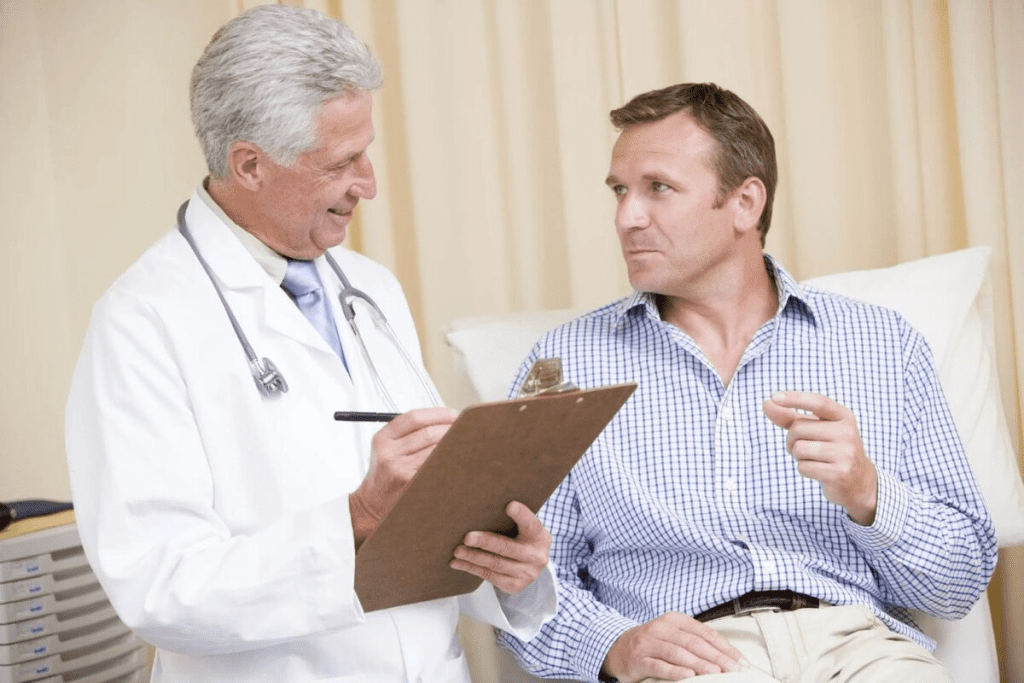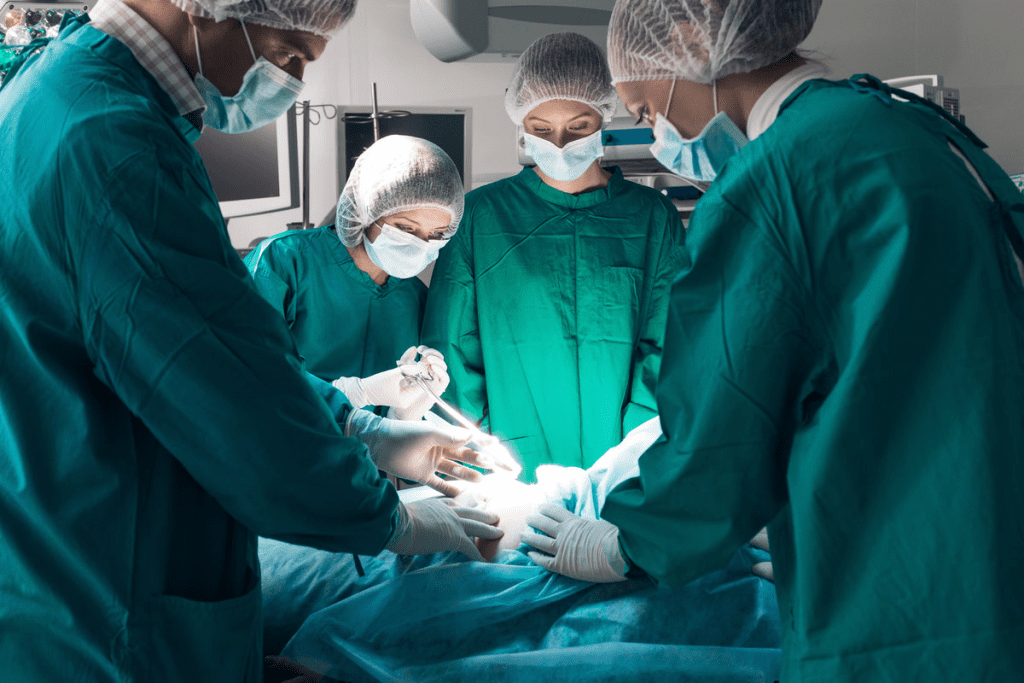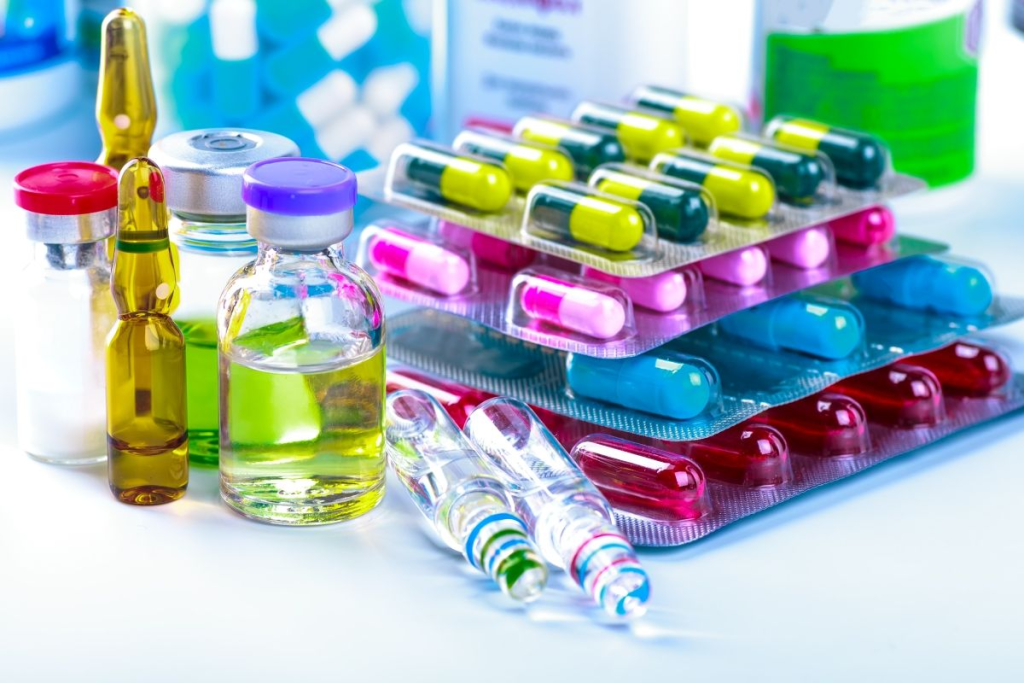Last Updated on November 25, 2025 by
Getting ready for robotic prostate surgery means following certain steps. Your doctor will tell you what foods to avoid and how to manage your medicines. This is key to a smooth and effective surgery.
Before surgery, you should not eat solid food for at least 8 hours. Also, you should not have anything to drink for 2 hours before. Your doctor might also suggest changes in your diet, bowel prep, and medicine adjustments. We make sure to communicate clearly and provide full care to our patients.

Knowing what to avoid before surgery helps keep you safe and ensures the best results. We help our patients through their before and after prostate cancer surgery journey. We offer the support and guidance they need.
Getting ready for prostate surgery is a big step. It involves changing your diet, managing your meds, and preparing your bowels. It’s important to follow these steps to reduce risks and make recovery easier.
Pre-surgery guidelines help make sure you’re healthy before prostatectomy robotic surgery or robotic surgery on prostate. Following these rules can lower the chance of problems during and after surgery. This includes eating right, managing your meds, and preparing your bowels as your doctor says.
Also, it’s key to talk about any worries you have, like can you have sex before surgery? Usually, doctors tell patients to avoid sex for a while before surgery. But, this can change based on your health and what your doctor says.
Getting ready for prostate surgery takes weeks. Here’s what you can expect:

By knowing and following this timeline, you can get ready well for your prostate surgery. This helps lower risks and makes for a better outcome.
To ensure a safe and successful prostate surgery, patients must be aware of the medications they should stop taking beforehand. Certain medications and supplements can increase the risk of bleeding during surgery. It’s important to follow the guidelines provided by your healthcare provider.
Blood thinners prevent blood clots. They are important for patients at risk of clotting. But, they can increase the risk of bleeding during surgery. Common blood thinners include warfarin, dabigatran, rivaroxaban, and apixaban.
The timeline for stopping these medications varies. Warfarin typically needs to be stopped 7-10 days before surgery. Newer anticoagulants like dabigatran may need to be discontinued 1-2 days before. It’s essential to consult with your doctor to determine the exact timeline for your specific medication.

Nonsteroidal anti-inflammatory drugs (NSAIDs) and aspirin are used for pain relief and inflammation. They can significantly increase the risk of bleeding during surgery. Examples of NSAIDs include ibuprofen (Advil, Motrin) and naproxen (Aleve). Aspirin works by preventing platelets from clumping together.
Patients are usually advised to stop taking NSAIDs and aspirin at least 7-10 days before surgery. If you’re wondering “can I take Advil after bladder surgery in male,” it’s best to consult your doctor. The answer depends on your individual health status and the specifics of your surgery.
Certain supplements can also increase the risk of bleeding during prostate surgery. Vitamin E, fish oil, and various herbal supplements affect blood clotting. Vitamin E and fish oil have been shown to increase the risk of bleeding due to their anticoagulant properties.
Herbal supplements like ginkgo biloba, garlic, and ginger can also interfere with blood clotting. It’s recommended to stop these supplements at least 7-10 days before surgery. The duration for which Celebrex stays in your system can vary. It’s advised to stop taking it for a few days before surgery.
Understanding the role of your prostate and the necessity of its removal during surgery is also vital. While the prostate gland plays a role in the male reproductive system, its removal (prostatectomy) is often necessary for treating prostate cancer or severe benign prostatic hyperplasia (BPH). The question “do you need your prostate” is complex and depends on individual health circumstances. Your healthcare provider will discuss the necessity of prostate removal based on your diagnosis and overall health.
Before a prostate operation, it’s key to follow certain diet rules. These rules help lower risks and make the surgery go smoothly. This is true for the RALP (Robotic-Assisted Laparoscopic Prostatectomy) procedure, a common urology RALP surgery method.
Patients should not eat solid foods for at least 8 hours before surgery. This means stopping food by midnight if surgery is in the morning. This rule helps keep the stomach empty, lowering the chance of aspiration during surgery.
In the 24 hours before surgery, patients can drink clear liquids. These include water, clear broths, and some sports drinks. Avoid red or purple drinks, as they might look like blood during surgery. A clear liquid diet keeps the patient hydrated without adding to the surgery’s complexity.
Even though clear liquids are okay, all food and water should stop 2 hours before surgery. This last fasting period is vital for safety during anesthesia and the operation.
By sticking to these diet rules, patients can greatly help their surgery’s success. Always listen to your healthcare team’s specific instructions. They might have extra or different rules based on your health and the surgery details.
Getting your bowel ready is very important to lower the risk of infections with prostate cancer robotic surgery. Knowing what to do before your robotic prostatectomy can make the process smoother and more successful.
Your doctor might tell you to drink magnesium citrate or use enemas. These steps help clean your bowel, which lowers infection risks during and after surgery. It’s important to listen to your healthcare team’s instructions to prepare well.
Good bowel prep can cut infection rates by up to 20%. This is very important for prostate surgery patients. By following your prep plan, you help make your surgery safer and more likely to succeed.
To prepare well, avoid common mistakes. Here are some things to keep in mind:
For more info on getting ready for prostate surgery, check out https://myhealth.alberta.ca/Health/aftercareinformation/pages/conditions.aspx?hwid=uf9444. It has details on aftercare and prep steps.
Getting ready for prostate surgery is a big step. It’s important to follow a detailed checklist for a smooth process. This checklist is the same whether you’re having robotic surgery or traditional surgery.
Before your surgery, stop taking certain medicines like blood thinners and NSAIDs. Your doctor will tell you when to stop. Also, avoid solid foods for at least 8 hours before surgery. Make sure to follow the bowel prep steps to lower infection risks.
After robotic surgery on your prostate, you’ll need to plan for recovery. Arrange for someone to drive you home and stay with you for a few days. You might wonder if you can have sex after surgery. Your doctor will give you specific advice on this.
By sticking to this checklist and your doctor’s advice, you’ll be ready for a successful surgery and easy recovery. Take time to understand the steps and ask your healthcare team if you have questions or concerns.
Robotic prostatectomy is a surgery that removes the prostate gland. It’s often used to treat prostate cancer.
Your doctor will tell you to avoid sex before surgery. This helps ensure a smooth procedure and reduces risks.
Avoid foods that can irritate your bladder or cause constipation after surgery. This includes spicy foods, caffeine, and high-fiber foods. Wait for your doctor’s okay to start eating these foods again.
Celebrex stays in your system for about 4-6 days after you stop taking it. But this time can vary based on your kidney function and dosage.
It’s best to avoid Advil after bladder surgery unless your doctor says it’s okay. Advil can increase the risk of bleeding.
RALP stands for Robot-Assisted Laparoscopic Prostatectomy. It’s a surgery that uses a robotic system to remove the prostate gland.
The prostate gland is important for male reproductive health. But, removing it may be necessary for treating prostate cancer or other conditions.
Yes, many men can have sex again after prostate removal surgery. But, your ability to get an erection may be affected. Talk to your doctor to understand what to expect.
Preparing your bowel before surgery is key. It helps reduce infection risk by cleaning your bowel. This makes the surgery and recovery safer.
Urology RALP is the use of Robot-Assisted Laparoscopic Prostatectomy in urology. It’s for treating prostate conditions.
Before surgery, you’ll follow specific guidelines. This includes dietary changes and adjusting medications. After surgery, you’ll need to follow a recovery plan. This plan may include follow-up appointments, medication, and lifestyle changes.
Subscribe to our e-newsletter to stay informed about the latest innovations in the world of health and exclusive offers!